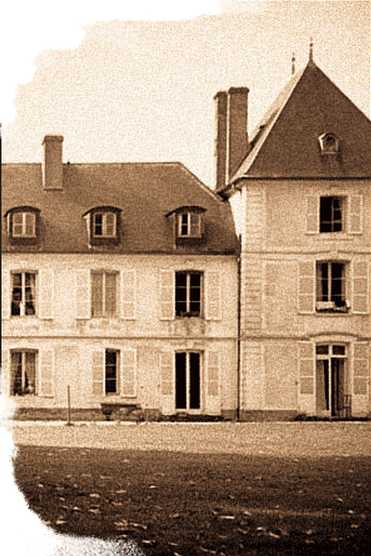An associate of the Order of the Third Bird, who wishes to remain anonymous, has reported to the Corresponding Secretary of ESTAR(SER) that he was recently approached by an individual who asked what relation, if any, the Order has, or has had, to the life and teachings of Georges Ivanovitch Gurdjieff.
It is not yet well known that several members of the Order in the early twentieth century, fleetingly attracted to the exotic gratifications of Gurdjieff’s entourage, were for a time present as observers or participants at the Institute for the Harmonious Development of Man. The Institute, also known as Le Prieuré, in its crumbling castle redoubt in the Forest of Fontainebleau, France, was located near one of the summer cottages frequented by Paris-based and international Birds during their more extended experimental-communal gatherings. The cottage and grounds were jokingly called the Forêt des Trois Pigeons, after the adjacent Forêt des Trois Pignons.
A journalist for the New Statesman (March 1923) echoes the opinion of most of the Birds who wandered into the Prieuré at one point or another, lured by talk of the exercises and experiments in heightened attention being carried out there: “The life is very simple and uncomfortable, the food is adequate but too starchy for an ordinary stomach, the work is extremely hard. The physical work, indeed, results often in a degree of exhaustion which perhaps exceeds anything that was produced even by a prolonged spell in the winter trenches of Flanders in 1917.” Many of these summering Birds being unreconstructed aesthetes with a taste rather for the finer pleasures of life, this was enough to dampen their interest in short time, along with the fact that the Gurdjieff community required a long, difficult apprenticeship, and patient attendance of lectures along with lessons in music and dance, before anything truly interesting could be imparted.
However, a certain H.R. whose correspondence we possess appears to echo another sentiment: that “Mr. Gurdjieff appears to possess full and exact knowledge of the nature, causation and practical reproduction of those rare phenomena of hyper-consciousness in which [William] James was so greatly interested.” What is extraordinary is that this well-placed Bird seems, at least temporarily, to have had as much influence on the charismatic and eccentric Gurdjieff as the other way around. In fact, the latter for a time adopted some of the characteristic terminology of the Order, though of course repurposed and repackaged; he is recorded around this period as calling the Fontainebleau community “my family – my birds” (Fritz Peters, Gurdjieff Remembered, 1965). A 1923 mimeographed German translation of one of Gurdjieff’s European lectures – the only extant edition, it is called Der Weg des dritten Vogel – concerns the “positioning” of the human faculty of attention between inner and outer, past and future, in an unattached and undirected manner. He refers to the famous metaphor from the Upanishads: “Two birds that are always together, cling to the same tree. Of these, one eats fruit of various tastes, and the other looks on without eating.”
Gurdjieff, who at the Prieuré preached what he called the “Fourth Way,” in this lecture spoke rather of a Third, between eating and not eating, past and future, self-observation and other-observation, embodied in a Bird of the present moment, fully self-aware with regard to body, emotions, and mind. Indeed, what Gurdjieff called the “Law of Three” – a cosmic law according to which every thing, force, and phenomenon in the universe comprises Active, Passive, and “Reconciling” moments – is folded into a system of discipline and meditation intended to help the seeker attain mastery of his or her powers of attention.
Be all this as it may, Gurdjieff built his entire teaching and philosophy around the realization that existing religions and cults tend to focus on the cultivation of one element of the triad of Mind, Emotions, and Body to the detriment of the other two; his Fourth way addresses all three. Moreover, the teaching of the Fourth Way, for all its focus on attention, urges seekers to minimize their tendencies toward daydreaming, distraction, absentminded wandering, chains of association and reverie, and so forth. It was probably this that led the Gurdjieff community to definitively reject the solicitations of the always opportunistically evangelical Birds.
The joke – as our H.R. does point out – might in the end be on the Gurdjieffians, since the obviously apocryphal “Sarmoung Brotherhood” of Sufis from which the great teacher claimed he had learned so much is actually based on the really-existing and centuries-old T-rrch’un [pronounced Scharchoun] Fellowship, from the Armenian word for “bird” – based in Tbilisi, Georgia.


